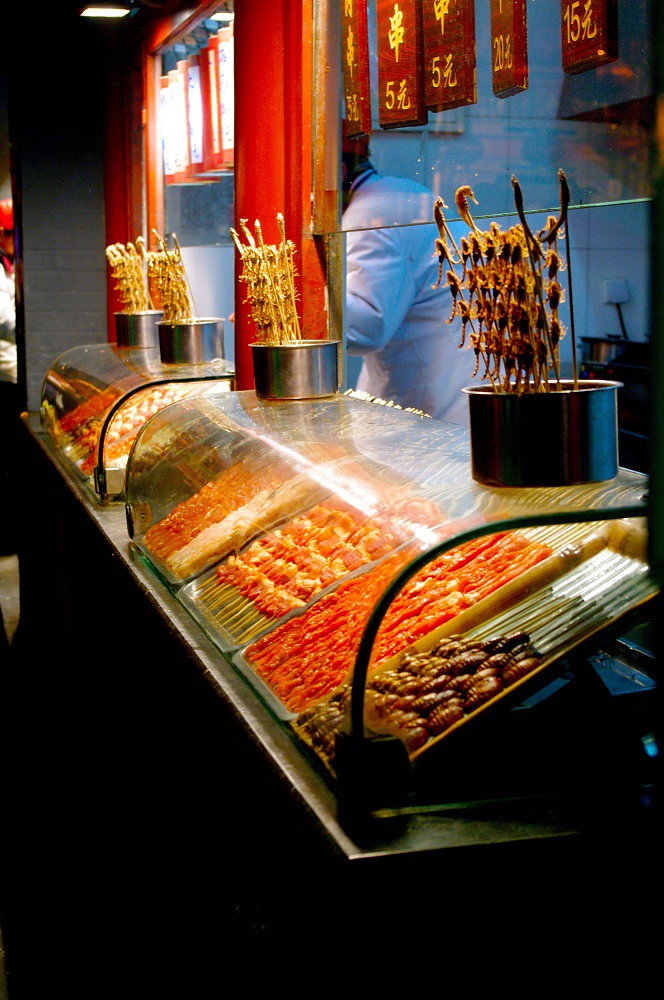
Live music venues have long stood as vital cultural hubs, offering a cherished platform for artists to captivate audiences and for music enthusiasts to immerse themselves in unforgettable live performances. These spaces are more than just buildings; they are crucibles where talent is forged, communities connect, and memories are made, contributing immeasurably to the entertainment industry’s vibrancy. Yet, despite their profound cultural significance and the deep emotional connections they foster, a concerning number of live music venues have found themselves struggling to remain open in recent years. This trend underscores a complex challenge for entrepreneurs and passionate operators alike, signaling that the landscape for such businesses is fraught with peril.
The reasons behind these struggles are multifaceted, reflecting a dynamic and often unforgiving market. Shifting consumer preferences, for instance, play a significant role as audiences increasingly seek diverse entertainment options, often at their fingertips through digital platforms. Concurrently, rising operational costs, from rent and utilities to equipment maintenance and artist fees, continually squeeze profit margins, making profitability an uphill battle. Add to this the relentless competition from online streaming services, which offer convenient, low-cost access to music, and the traditional live venue faces an existential threat that demands innovative thinking and strategic adaptation.
To navigate this challenging environment and ensure longevity, live music venue businesses must rigorously evaluate their operational strategies and proactively address potential pitfalls. This in-depth article will illuminate nine critical mistakes that frequently lead to the downfall of small music venues. By understanding these common missteps – ranging from poor location choices to inflexible booking policies – operators can arm themselves with actionable insights, refine their approaches, and work towards building a resilient and thriving space where live music can continue to flourish. The survival of these vital institutions hinges on recognizing and rectifying these fundamental errors, transforming potential failures into opportunities for innovation and sustained success.

1. **Poor location with low foot traffic**One of the most foundational and often overlooked reasons for the failure of live music venue businesses, like the hypothetical Harmony Hub, is a poor choice of location characterized by low foot traffic. The inherent success of a live music venue is profoundly tied to its accessibility and visibility, making its physical placement paramount. If a venue is situated in a remote or hard-to-reach area, perhaps lacking robust public transportation options or visible signage, it can drastically impede the number of potential patrons willing to make the journey.
Without a consistent and robust flow of foot traffic, a live music venue will inevitably struggle to attract a sufficient customer base to sustain its demanding operations. Even if a venue boasts top-tier performances and offers a genuinely unique live music experience, these assets alone may not be enough to overcome the significant hurdle presented by an inaccessible location. In a highly competitive entertainment market, where consumers have a plethora of options, convenience stands out as a critical factor in their decision-making process, often overriding other considerations.
Furthermore, a live music venue located in an area with low foot traffic faces substantial difficulties in generating diverse revenue streams. Beyond ticket sales, venues rely heavily on income from food and beverage services, as well as merchandise sales. A lack of visibility and accessibility directly hinders the venue’s ability to draw in a broad and diverse audience, making it challenging to build a loyal customer base over time. Without a steady stream of customers across all offerings, the venue will find it exceedingly difficult to cover its operating costs and achieve profitability.
To mitigate the risk of a poor location, live music venue businesses, including Harmony Hub, must undertake meticulous due diligence when selecting a site. This involves conducting thorough market research and comprehensive feasibility studies to pinpoint areas with demonstrably high foot traffic, a vibrant existing music scene, and a target demographic that aligns seamlessly with the venue’s artistic offerings. Strategic positioning in such an environment is not merely an advantage; it is often a prerequisite for success.
In addition to careful location scouting, proactive investment in robust marketing and promotional efforts is crucial for raising awareness about the venue and its scheduled events. This focused outreach can significantly help in attracting new customers and driving essential foot traffic to the chosen location. Ultimately, the long-term success of a live music venue business hinges critically on its ability to secure a prime location that offers both high visibility and easy access, thereby fostering a thriving and engaged live music community.
Read more about: Drove it Regretted it: 12 Compact Models That Made Owners Question Their Judgment on the First Commute.

2. **Inadequate sound and lighting equipment**Another critical factor contributing to the failure of live music venue businesses is the presence of inadequate sound and lighting equipment. The quality of both sound and lighting systems can fundamentally make or break a live music performance, directly impacting the entire experience for both the performing artists and the captivated audience. When venues fail to invest in high-quality, professional-grade equipment, the result is almost invariably a subpar experience that undermines the artistic effort and alienates patrons.
Investing in state-of-the-art sound and lighting equipment is not merely an expense; it is an essential investment in creating an immersive and truly engaging live music experience. Poor sound quality, for example, can distort the music, rendering it difficult for the audience to fully appreciate and enjoy the performance as intended. Similarly, inadequate lighting can severely detract from the desired atmosphere and mood of the show, significantly impacting the overall experience for everyone present. According to a 2022 study by Live Performance Australia, a remarkable 87% of surveyed audience members rated sound quality as “very important” in their overall enjoyment of a concert, underscoring its pivotal role.
The repercussions of failing to prioritize sound and lighting equipment are severe, often manifesting in negative reviews from both artists and attendees. Artists depend on quality equipment to effectively showcase their talent; when they are unable to do so, it can harm their professional reputation and deter them from considering future engagements at the venue. Similarly, audience members arrive with an expectation of a certain level of production value, desiring clear audio and a well-lit environment. When a venue falls short in these fundamental areas, it leads to disappointed patrons who are less likely to return or recommend the venue to others, as noted by industry experts like Mario Schwartz, a seasoned audio engineer.
In fact, Mario Schwartz, with extensive experience in live sound, emphasizes that even in small venues, a basic yet effective PA setup is crucial. His advice highlights the importance of ensuring vocals cut through clearly, maintaining a good bass foundation for the music’s vibe, and ensuring all instruments are audible without masking the vocals too much. This perspective reinforces that while budgets may be tight, strategic investment in the right components and careful setup can yield exceptional results, even in challenging acoustic environments.
Ultimately, investing in premium sound and lighting equipment is not just about providing a high-quality live music experience; it is also about attracting top-tier talent and cultivating a loyal customer base. Venues that demonstrate a clear commitment to these essential elements signal a dedication to excellence and convey that they genuinely value the artists who perform and the audiences who support them. This commitment, in turn, helps a venue earn a reputation as a space where performances sound truly exceptional, encouraging repeat visits and positive word-of-mouth.
Read more about: Diesel Durability Unveiled: 10 Engines That Redefine Longevity — And Those That Don’t

3. **Mismanagement of finances**One of the most pervasive and insidious reasons for the failure of live music venue businesses, including establishments like Harmony Hub, is the rampant mismanagement of finances. Operating a live music venue requires not only a passion for music but also meticulous financial planning and budgeting to ensure both sustainability and long-term profitability. Regrettably, many venue owners enter the business with an insufficient understanding of the substantial costs involved, subsequently failing to allocate their resources effectively.
Several common financial blunders frequently lead to the premature downfall of a live music venue. A primary mistake is the underestimation of expenses. The operational costs of a venue are extensive and varied, encompassing everything from rent and utilities to ongoing equipment maintenance and crucial artist fees. Failing to accurately account for and estimate these numerous and often unpredictable costs can very quickly lead to severe financial strain, pushing the business towards insolvency before it even has a chance to stabilize.
Conversely, another prevalent error is overestimating potential revenue. While ticket sales and food and beverage sales are undoubtedly the primary income generators for a live music venue, it is perilous to rely solely on these streams or to project them optimistically without realistic market data. Overestimating revenue can result in critical cash flow problems, making it impossible to consistently cover expenses and meet financial obligations, even during periods of apparent success.
Beyond basic estimation errors, poor budgeting stands as a significant failing. Without a meticulously defined budget that clearly outlines anticipated income and projected expenses, a live music venue can easily succumb to overspending or the inefficient allocation of its limited resources. A fundamental lack of financial discipline can rapidly erode any financial stability, jeopardizing the entire enterprise. Furthermore, the live music industry is in a state of constant evolution, marked by shifts in audience preferences, technological advancements, and broader economic conditions. A failure to adapt financially to these dynamic changes can result in considerable financial losses and a drastic decrease in competitiveness within the market.
In some particularly concerning instances, financial mismanagement in live music venues can be directly attributed to a profound lack of financial transparency and accountability. Without clear, consistent financial reporting and rigorous oversight mechanisms, funds can easily be misallocated, or even misused, leading to a breakdown of trust and operational integrity. Addressing these pervasive financial challenges demands a proactive and disciplined approach to financial management. This includes the creation of a detailed, dynamic budget, the regular monitoring of financial performance against benchmarks, the strategic diversification of revenue streams to reduce reliance on any single source, and, crucially, seeking professional financial advice when complexities arise. By prioritizing sound financial practices, live music venue businesses can significantly enhance their chances of achieving long-term success and enduring sustainability in a challenging industry.
Read more about: Unmasking 12 Repair Shop Blunders That Annoy Owners, Insurers, and Customers Alike

4. **Failure to market effectively**One of the paramount reasons for the failure of live music venue businesses, such as Harmony Hub, is a glaring inability to market effectively. Despite potentially offering a unique and high-quality live music experience, a venue will inevitably struggle to attract and retain audiences if it does not implement a strong, strategic marketing plan. In today’s hyper-connected world, even the most exceptional performances can go unnoticed if not properly promoted to the right audience.
A common marketing pitfall is a lack of robust online presence. In our current digital age, having a strong and engaging online footprint is absolutely essential for any business to thrive. Live music venues that neglect to invest in a professional, user-friendly website, actively managed social media accounts, and targeted online advertising campaigns effectively miss out on reaching a massive portion of their potential audience. This digital invisibility severely limits their reach and impact.
Another significant mistake is failing to target the right audience. Effective marketing hinges on a deep understanding of the demographics, preferences, and behaviors of your target market. If a live music venue fails to meticulously tailor its marketing efforts to genuinely appeal to its specific target audience – whether that’s indie rock fans, jazz aficionados, or electronic music lovers – it will invariably struggle to attract attendees to its events. Simultaneously, underestimating the enduring power of word-of-mouth remains a critical error. While online marketing is undeniably important, positive buzz generated by satisfied customers and strategic partnerships with local influencers remains an incredibly potent tool for promoting a live music venue. Failing to cultivate this organic promotion can significantly hinder its success and reputation.
Ignoring local partnerships also represents a missed opportunity. Collaborating strategically with local businesses, complementary artists, and community organizations can significantly help a live music venue expand its reach, tap into new customer bases, and solidify its local standing. Failing to forge strong relationships within the local community can severely limit the venue’s visibility, stifle its growth potential, and isolate it from valuable resources. Additionally, not investing adequately in promotional events – such as hosting contests, offering special discounts, or creating themed nights – can result in stagnant ticket sales and a critical lack of audience engagement, as these tactics are vital for generating excitement and attracting new patrons. According to a 2022 report by Billboard, a compelling 64% of concert attendees first discover live events through social media or targeted online ads, highlighting the crucial shift in audience discovery methods.
Effective marketing is non-negotiable for the sustained success of a live music venue like Harmony Hub. By diligently avoiding these common marketing mistakes and instead implementing a comprehensive marketing strategy that precisely targets the right audience, leverages both online and offline channels, and cultivates strong, symbiotic partnerships within the local community, a live music venue can dramatically increase its visibility, attract more dedicated attendees, and ultimately thrive in an intensely competitive industry. This holistic approach ensures that the music finds its audience and the venue builds a lasting legacy.
Read more about: Navigate the Auto Auction Minefield: Essential Mistakes to Avoid for Savvy Car Buyers and First-Timers Alike

5. **Neglecting local talent and community**One of the most detrimental yet frequently made mistakes by live music venue businesses is the neglect of local talent and a broader disengagement from the community they operate within. Many venues, in their pursuit of booking established artists or popular touring acts, inadvertently overlook the rich reservoir of talent that exists within their own community. This oversight represents a profound lack of support for the local music scene, which not only alienates local artists but also severely limits the venue’s capacity to build a loyal, deeply engaged, and truly invested audience.
By neglecting to champion local talent, live music venues squander a crucial opportunity to foster a strong sense of community within their physical space and artistic ecosystem. Local artists are often considered the very lifeblood of a vibrant music scene, bringing unique sounds, fresh perspectives, and an authentic connection that resonates deeply with local audiences on a personal level. By consistently showcasing and nurturing local talent, venues can intentionally create a more intimate, authentic, and relatable experience for their patrons, thereby fostering a profound sense of connection and loyalty that is absolutely essential for long-term success and cultural relevance.
Furthermore, the consistent neglect of local talent can have a significantly negative ripple effect on the venue’s reputation within the community. When venues repeatedly choose to overlook local artists in favor of more widely known acts, they run a substantial risk of being perceived as out of touch, elitist, or genuinely uninterested in supporting the foundational local music scene. This perception can lead to a critical loss of credibility and trust among both local artists and their potential audiences, ultimately hindering the venue’s ability to attract and retain the very customers it needs to survive. According to a 2021 survey by the National Independent Venue Association (NIVA), over 80% of music fans cite a venue’s atmosphere and programming diversity as key factors influencing their decision to attend shows, emphasizing the importance of local integration.
Additionally, by failing to actively engage with the local community, live music venues miss out on invaluable opportunities for collaborative ventures and strategic partnerships. Local businesses, community organizations, and fellow artists can provide crucial support, extensive promotional reach, and essential resources that can significantly help the venue to thrive and grow. By neglecting these potential partnerships, venues severely limit their ability to reach new audiences, expand their professional network, and contribute to the creation of a more vibrant, resilient, and sustainable music ecosystem that benefits everyone involved.
In summation, neglecting local talent and community engagement is a critical error that can directly lead to the failure of live music venue businesses. By consciously prioritizing and enthusiastically supporting local artists, venues can cultivate a more authentic and deeply engaging experience for their audiences, build an unshakeable sense of community, and firmly establish themselves as indispensable members of the local music scene. This approach not only ensures a diverse and inclusive lineup, leading to increased ticket sales as indicated by a 2023 Music Cities Events report, but also embeds the venue deeply within the cultural fabric of its surroundings, securing its place for years to come.
Read more about: Retirement Planning Perils: 14 Common (and Costly) Mistakes Every Pre-Retiree Needs to Avoid

6. **Ignoring customer feedback**One of the critical oversights that can lead a live music venue, such as Harmony Hub, to falter is the consistent tendency to ignore customer feedback. In their drive to craft a unique and premium live music experience, some venues unfortunately neglect the vital importance of actively listening to their audience’s preferences, constructive suggestions, and valid complaints. This pervasive disregard inevitably creates a significant disconnect between the venue and its patrons, culminating in a noticeable decline in overall customer satisfaction and, ultimately, their loyalty.
By choosing to overlook this invaluable input, live music venues forfeit crucial insights that could otherwise propel them towards improving their offerings, significantly enhancing the overall patron experience, and maintaining a competitive edge in a dynamic market. This neglect also translates into missed growth opportunities, as customers who perceive their voices are unheard or their appreciation is undervalued are markedly less likely to return for future events or enthusiastically recommend the venue to their social circles.
It is therefore absolutely essential for live music venues like Harmony Hub to proactively seek out and attentively listen to customer feedback across a multitude of channels. This includes implementing straightforward surveys, diligently monitoring online reviews, engaging actively on social media platforms, and facilitating direct interactions. By consistently paying close attention to what their audience communicates, venues can effectively pinpoint specific areas ripe for improvement, promptly address any emerging issues, and meticulously tailor their offerings to better align with the evolving needs and preferences of their diverse customer base.
Furthermore, customer feedback provides invaluable insights into a broad spectrum of operational aspects, including the performance quality of artists, the fidelity of sound and lighting, the overall ambiance and comfort of the venue, the fairness of ticket and service pricing, and the overarching satisfaction levels of the audience. By thoughtfully integrating this feedback and executing necessary adjustments, live music venues can cultivate a more engaging and genuinely enjoyable experience for their customers. This strategic approach consistently leads to increased attendance, the generation of positive word-of-mouth, and ultimately, sustained long-term success.
Read more about: Owner’s Group Chatter: 11 Critical Sensors That Allegedly Go Kaput on Used Cars Before You Hit the Big 5-0

7. **Overlooking legal and licensing issues**A pivotal reason for the failure of live music venue businesses is the dangerous oversight of intricate legal and licensing issues. Operating a live music venue demands a meticulous navigation through a complex and constantly evolving web of regulations and stringent requirements, all of which are absolutely essential for the venue’s legal standing and its long-term operational sustainability. A failure to diligently address these critical legal aspects can precipitate severe and far-reaching consequences, ranging from substantial fines and mandated closure to irreversible damage to the venue’s hard-earned reputation within the community.
One fundamental area of concern involves the critical permits and licenses that are non-negotiable for lawful operation. Live music venues are legally obligated to secure all requisite permits and licenses, which typically include entertainment licenses, alcohol licenses, and specialized permits specifically for live performances. Any failure to proactively secure these essential licenses can directly result in significant financial penalties and direct legal action, jeopardizing the venue’s very existence.
Beyond basic operational permits, venues must also contend with local noise regulations, which are frequently imposed by municipal authorities. It is paramount for venue owners to possess a thorough understanding of these specific regulations and to consistently ensure full compliance. This proactive approach is vital for preventing noise complaints from neighbors, which can quickly escalate into official warnings, fines, and even potential shutdowns, significantly disrupting operations.
Another crucial legal consideration revolves around copyright and performance rights. Live music venues are legally required to ensure they possess the appropriate licenses to publicly play copyrighted music. This means obtaining performance rights licenses from recognized organizations such as ASCAP, BMI, and SESAC. Neglecting to secure these necessary licenses can expose the venue to costly copyright infringement claims, which carry severe financial and reputational risks.
Finally, live music venues routinely engage in various contractual agreements with performing artists, external promoters, and diverse vendors. It is absolutely essential to establish clear, comprehensive, and legally binding contracts for all parties involved. Such robust agreements are fundamental to protecting the intricate interests of everyone concerned, mitigating potential disputes, and ensuring the smooth and professional execution of all operations. By meticulously prioritizing compliance with these regulations and actively seeking expert legal guidance, venue owners can safeguard their businesses against significant risks and ensure lawful, uninterrupted operations.
Read more about: A Comprehensive Guide for Consumers: Navigating the Complexities of Importing a Car from Abroad

8. **Limited or poor quality food and beverage options**While the quintessential allure of a live music venue undeniably centers on providing an exceptional platform for artists to captivate audiences and for music lovers to savor immersive live performances, the holistic experience is frequently and significantly enhanced by the availability of appealing food and beverage options. When patrons dedicate their time and resources to attend a live music event, they inherently anticipate having convenient access to a diverse array of refreshments to elevate their overall experience. However, if a venue presents a sparse selection of snacks or drinks, or worse, if the quality of these offerings is consistently subpar, it can severely diminish the audience’s overall satisfaction and enjoyment.
The uncompromising standard of quality plays an absolutely pivotal role in determining the ultimate success of a live music venue’s food and beverage program. Patrons are demonstrably more inclined to become repeat visitors to a venue that consistently serves high-quality food and drinks—offerings that are both genuinely delicious and meticulously prepared. Conversely, if the culinary selections are routinely bland, the drinks are perceived as watered down, or the service provided is frustratingly slow and inefficient, these shortcomings will undeniably deter customers from making a return visit, effectively eroding potential long-term loyalty.
Beyond sheer quality, the breadth and variety of food and beverage options available at a live music venue are equally vital. Audiences possess incredibly diverse preferences when it comes to their dietary and beverage choices. A venue that offers an overtly limited selection will inevitably struggle to cater effectively to the varied tastes of all its customers, inadvertently alienating segments of its potential market. By thoughtfully curating a diverse menu that explicitly includes options for various dietary restrictions and personal preferences, a live music venue can significantly broaden its appeal, attract a wider demographic of patrons, and notably enhance their collective experience.
Furthermore, the strategic pricing of food and drinks within a live music venue holds considerable sway over its commercial viability and overall success. If prices are set excessively high, patrons may understandably become reluctant to purchase items, leading directly to a substantial loss in potential revenue. Conversely, if prices are positioned too low, the venue may struggle considerably to adequately cover its operational costs and achieve a necessary profit margin. Striking the precise and optimal balance between offering genuinely affordable options and rigorously maintaining profitability is an indispensable element for ensuring the enduring sustainability of any live music venue.
In essence, the presence of either severely limited or consistently poor quality food and beverage options can emerge as a significant and often underestimated factor contributing directly to the failure of live music venue businesses. By consciously prioritizing and meticulously optimizing the quality, expansive variety, and strategic pricing of their offerings, venues can profoundly elevate the overall experience for their discerning patrons, thereby dramatically increasing their probability of achieving sustained success within an intensely competitive market.
Read more about: 12 Unforgettable Venue Fiascoes: From Celebrity Eateries to Dream Wedding Disasters
In the challenging yet vibrant world of live music venues, understanding and proactively addressing these critical operational pitfalls is not merely a recommendation—it is an absolute imperative for long-term survival and flourishing. From diligently listening to the heartbeat of your audience through their feedback, to meticulously navigating the complex legal landscape, consciously enhancing the quality and diversity of every offering, and embracing flexibility in your operational policies, each strategic move plays a pivotal role. By transforming these potential weaknesses into strengths, venue operators can ensure their spaces continue to be cherished crucibles of culture, where unforgettable performances ignite spirits and communities connect, securing a vibrant future for live music for generations to come.


